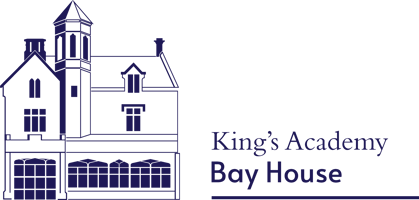Business, Enterprise and Economics
Business is for pupils who want to learn more about and are interested in the core business concepts and how businesses work, from start-ups to multinational companies.
The Business and Enterprise courses aim to develop pupils’ awareness of the importance of enterprise and commerce in developing and sustaining a healthy economy. A range of practical and transferable employability skills are embedded in all courses alongside the academic qualifications themselves. Courses explore everything business-related from starting and building up a business and developing marketing plans to pitching business ideas and understanding business from an operational and global perspective. We offer a choice of business or economic subjects at KS5 which progress naturally from the KS4 curriculum.
Key Stage 3
In Year 9 we offer taster sessions for the pupils to get a good grasp of what GCSE Business involves, and the different pathways it can lead to. We also run a Tycoon Enterprise club with access to national enterprise competitions, Enterprise experience days and business lunches.
Key Stage 4
Business is a very popular option choice, Pupils have the option of taking one of two pathways, both of which are level 2 qualifications (GCSE or equivalent) but which offer different opportunities. Through guided choices, pupils take either Business GCSE or the Level 2 in Enterprise and Marketing.
Business GCSE (Edexcel)
GCSE Business is a two year course with final exams at the end of year 11. In Year 10, pupils will study Theme 1 –Investigating small business, which focuses on the techniques and skills required to develop business ideas, set up and run a business through theoretical concepts which are applied to real business scenarios. Content includes entrepreneurship, risk and reward. Business planning, financial forecasting and marketing concepts. Theme 1 represents 50% of the total qualification in the final assessment.
In year 11, pupils study theme 2 – Building a business. This section predominantly investigates how we grow a business, and includes themes such as globalisation and business ethics, alongside functional theory exploring finance, marketing, operations and human resource management. Theme 2 represents the final 50% of the end point examinations.
For further information please have at look at the specification overview https://qualifications.pearson.com/content/dam/pdf/GCSE/Business/2017/specification-and-sample-assessments/GCSE_Business_Spec_2017.pdf
Cambridge National in Enterprise and Marketing (OCR)
This is an exciting and varied course, with many practical elements that not only prepare our pupils for college and sixth form but also the world of work. For this course, all pupils study three mandatory units covering enterprise and marketing concepts where they have to design and market a viable business proposal.
The first unit underpins the wider learning in this qualification. Pupils develop essential knowledge and understanding of enterprise and marketing concepts, which are applied to the other units within the qualification. This unit is assessed by an external examination, which makes up 50% of the overall grade
In the second unit, pupils develop the skills needed to design a business proposal to meet a scenario set by the exam board. They identify a customer profile for a specific product, complete market research to generate product design ideas and use financial calculations to propose a pricing strategy and determine the viability of their product proposal. This unit is assessed internally via controlled assessment, making 25% of the final grade
In the final unit, pupils develop the skills needed to create a brand identity and promotional plan for the product proposal they produced in the previous unit. They develop pitching skills in order to introduce their proposal to an external audience. This unit again is assessed internally, and makes up the final 25% of the final mark.
Further information can be found her https://www.ocr.org.uk/Images/338513-specification.pdf.
Key Stage 5
There are 2 further pathways that pupils can opt to choose from at A level. Both are extremely successful and popular courses. We offer both Business and Economics at A level.
Business
Pupils investigate different types and sizes of organisations in various business sectors in local, national and global contexts. Pupils also learn how to analyse and interpret financial indicators, as well as calculate, use and understand a variety of accounting ratios. This qualification provides a solid foundation for a wide range of higher education courses such as business management, accountancy, marketing or international business. Students can also progress to a wide range of careers ranging from banking, sales, product management and general management to working in public sector organisations or charities.
Economics
Pupils will consider the different approaches that may be used by a country’s policy-makers to suggest solutions to real problems. Pupils will also learn how to analyse and interpret economic indicators, study the impact of business and economic activity on markets, consumers and firms as well as calculate, use and understand a variety of accounting ratios. This qualification provides a solid foundation for a wide range of higher education courses including Economics, Finance, Accounting and Management. Economics offers a range of career opportunities including Economist, Civil Service, Accountancy, Journalism, Stockbroker and Financial services.
If you wish to find out more information about either of these A level options please have a look at our Sixth Form page https://kgabayhouse.uk/sixth-form/course-information/.

